melatonin
In this post you will understand how melatonin manages to control the sleep / wake cycle and some advice on what to do if this cycle goes wrong.
Sleep: It is one of the most important elements that we must watch out for our health.
However, research indicates that a large number of people sleep less than seven hours each night (1,2).
Lack of sleep increases the risk of cancer, heart disease, depression, diabetes and simply does not feel good or does not work well during the day (3).
If you are not sleeping well, this 12-part sleep series may be able to help you identify the root of the problem and change things so you can start benefiting from more sleep each night.
This series covers the following 12 possible causes of insomnia:
- Synchronization
- Environment
- The need to use the toilet interrupts sleep
- Imbalance of blood sugar
- Elevated cortisol levels
- Weight gain
- Inflammation and pain
- Food sensitivities
- Imbalance in neurotransmitters
- Hormonal changes
- Low levels of melatonin (this entry)
- Stress and the problems it causes in sleep
Melatonin, the hormone that controls circadian rhythms
Today we are going to talk about melatonin, the hormone that we depend on to create our circadian rhythm (sleep-wake cycle) and obtain the benefits of sleep.
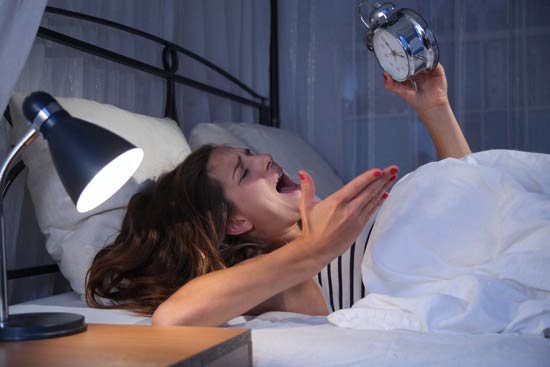
It's amazing how our body responds to light and darkness!
When the day comes to an end, our eyes pick up the change of light to darkness and send a signal to the pineal gland in the brain to start producing a hormone called melatonin.
Each hormone communicates different messages within our body, melatonin is the touch of the cornet so that the body is ready to sleep.
As melatonin levels increase and begin to circulate throughout the body, sleep takes over.
As you can predict, melatonin levels are higher at night (at approximately 22:00 they reach their highest level) and are lower during the day.
In addition to indicating to our body when it is time to sleep, melatonin is an antioxidant, which reduces oxidative stress that damages cells and influences our immune system and our mood.
Charities of melatonin
Melatonin is an intelligent hormone with a variety of possible benefits, including:
Help with depression and seasonal affective disorder (SAD) (4,5).
Help relieve pain (such as in fibromyalgia) (6).
Prevent and even eliminate cancer cells (7).
Decrease the influence of estrogen on the development of tumors (8).

melatonin
For this last point is the reason why melatonin is recommended so often by professionals who monitor patients who have (or have had) cancer, especially breast cancer.
Understanding the overall benefits of melatonin helps us see why lack of sleep is so damaging.
The biggest concern is when melatonin levels are too low at night, when normally, they should be high enough to induce sleep.
When this happens, the person is vulnerable to the effects of lack of sleep and the effects of the lack of melatonin.
But it does not have to continue like this. We can correct melatonin levels by addressing the cause of low levels.
What causes melatonin to be low (when it should be high)?
There are a number of factors that influence the production of melatonin, including:
Stress.
Lack of exposure to natural light during the day (9).
Exposure to night light (often television, telephones, computers and watches) (10).
Work on night shift.
Changes of route and time zone (also known as jet-lag).
Difficulty sleeping, due to a newborn.

- Leaky intestine and nutritional deficiencies.
How will I feel if my melatonin is low (when it should be high)?
There are a number of possible symptoms, since each person is different.
If you experience more than one of the following symptoms, then the melatonin levels may be unbalanced and it would be worthwhile to consider analyzing:
Stay awake instead of sleeping after 10pm.
Difficulties to sleep.
Feeling tired during the day.
oblivion.
Greater susceptibility to colds and flu (less immunity).
How can I find out if my melatonin levels are very low?
Why guess when you can know for sure?
The test to identify melatonin levels is very simple, collect a sample of saliva around 22:00 to see the level of melatonin at the time it should be higher.
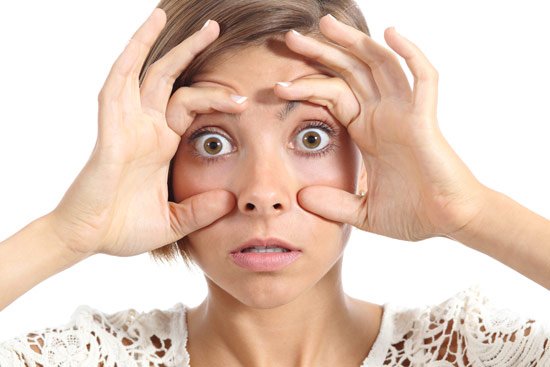
It may also be useful to measure the level of melatonin just before you go to sleep (if you go to bed at a different time at 10pm).
Unfortunately, this test is not commonly performed by standard medical offices or sleep clinics.
Reason why you will have to work with a naturopathic doctor (or functional medicine practitioner) who can do the test, interpret the results and advise on the support you need to regain balance in melatonin levels.
- Turn off the lights before 22:00 hours
Some sources even recommend lowering the lights at sunset or at 7:00 p.m.
I recommend lowering the lights at least one hour before going to bed and, as much as possible, turn off the electronic devices and all the lights in your bedroom (even the smallest light can reduce melatonin).
Melatonin
Remove the letters and you will see the total darkness
- Reduce exposure to blue light
If you need to be exposed to light after 10pm, you can buy glasses that block blue light, the kind of light that shuts down the melatonin production.
You can find this type of orange glasses on Amazon from two companies: Uvex and Sun Shield.
They allow you to see, but they prevent the brain from perceiving that wave of light.
There are also software programs, such as f.luxTM (which is free), which decreases exposure to blue light from the computer or other devices.
At the same time it allows you to see the screen.
The exposure to light is automatically adapted based on the time zone of your location.
- Take a melatonin supplement
You could take a melatonin supplement to help increase the levels.
The best known presentations are capsules and sublingual tablets (which dissolve under the tongue), and are released as a function of time, to recommend, it would be the capsule form.
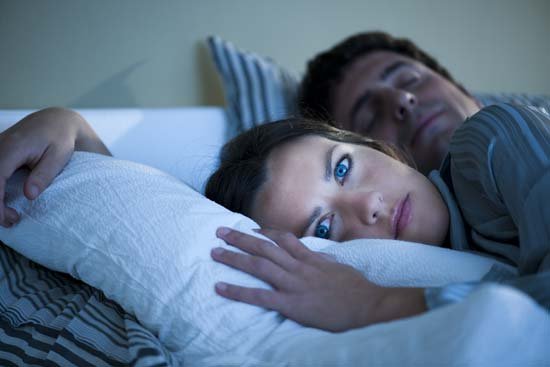
melatonin
A common initial dose is 1 mg, taken one hour before going to bed / sleep, optimally at 9 pm.
If you do not see a sufficient difference with 1 mg, you can increase it to 2 or 3 mg, until you find the ideal dose.
In some cases, the dose can be increased from 5 to 20 mg, however to reach these doses should be done under the advice of a qualified doctor.
You may also find that taking 1 to 5 mg of melatonin will help you adapt to a new time zone when traveling.
I suggest you take melatonin before bedtime (22:00) in the new time zone.
It is important to keep in mind that melatonin has no addictive qualities or withdrawal symptoms, although it can make your dreams more vivid.
- Check your serotonin levels
Melatonin is produced in the body from tryptophan and serotonin.
If melatonin is low, then it is also important to consider whether serotonin levels are also low.
Serotonin can be measured in a panel of urine and, if the levels are low, you could take a supplement of tryptophan or 5HTP, to activate serotonin.
Melatonin
Even eating a couple of bananas a day can raise the levels of tryptophan, hence the melatonin is a step.
As your serotonin levels increase, so will melatonin levels.
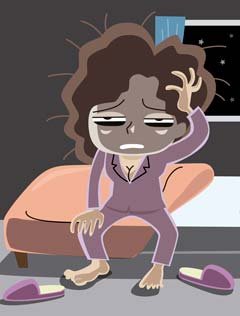
Inquiring to the bottom
Melatonin, like other hormones, is responsible for delivering important messages in different body organs.
When their levels are low, often due to exposure to stress and light at night, we are likely to experience the negative effects of their deficit.
It is an important hormone not only in terms of sleep, but also for healthy cells, immune function and mood, it is worth identifying if for you it is a problem and from there, proceed with your treatment.
Now, if you follow these steps and still can not sleep, then it's time to go deeper and get a better understanding of what keeps you awake.
Often there are several factors.
You may have low melatonin levels and high cortisol, for example.
Or maybe it's a combination of leaky gut, food sensitivities, low serotonin and melatonin.
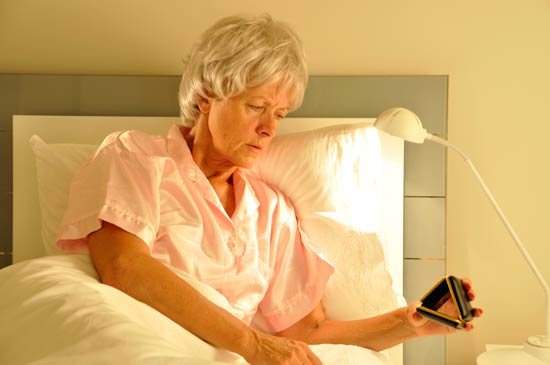
All of them are related to each other, but they need to be addressed individually to completely solve your sleep problem.
Or it could be that you suffer inflammation (either due to an injury or a food) that interrupts your sleep, causes weight gain and also alter your sleep patterns.
Last words around low levels of melatonin
To break these vicious circles, we need to first understand all the causes and then address each of them.
Then, little by little, over time, the body will begin to adjust, restoring your sleep.
However, it should be noted that it is often a process that requires patience and diligence.
And that can be difficult when you can not sleep.
To ensure that you get the support you need to recover a healthy sleep pattern, I invite you to work with a professional who can guide you through the necessary steps.
Please share your experiences and questions about the dream in the comments box below.
Next week is the final installment of this dream series and will deal with how stress affects your sleep.
If you want to be sure not to miss it, you can subscribe through the subscription box on this page.
References:
Institute of Medicine. Sleep disorders and sleep deprivation: an unmet public health problem. Washington, DC: The National Academies Press; 2006
Ram S, Seirawan H, Kumar SK, Clark GT. Prevalence and impact of sleep disorders and sleep habits in the United States. Sleep Breath 2010; 14: 63-70
Comai S1, Ochoa-Sanchez R1, Dominguez-Lopez S1, Bambico FR1, Gobbi G2. Melancholic-Like Behaviors and Circadian Neurobiological Abnormalities in Melatonin MT1 Mice Knockout Receptor. Int J Neuropsychopharmacol. 2015 Jan 31; 18 (3). pii: pyu075. doi: 10.1093 / ijnp / pyu075.
Nagy AD1, Iwamoto A, Kawai M, Goda R, Matsuo H, Otsuka T, Nagasawa M, Furuse M, Yasuo S. Melatonin adjusts the expression pattern of clock genes in the suprachiasmatic nucleus and induces antidepressant-like effect in a mouse model of seasonal affective disorder Chronobiol Int. 2014 Dec 17: 1-11.
de Zanette SA, Vercelino R, Laste G, Rozisky JR, Schwertner A, Machado CB, Xavier F, de Souza IC, Deitos A, Torres IL, Caumo W1. Melatonin analgesia is associated with improvement of the descending endogenous pain-modulating system in fibromyalgia: a phase II, randomized, double-dummy, controlled trial. BMC Pharmacol Toxicol. 2014 Jul 23; 15: 40. doi: 10.1186 / 2050-6511-15-40.
Plaimee P1, Weerapreeyakul N, Barusrux S, Johns NP. Melatonin potentiates cisplatin-induced apoptosis and cell cycle arrest in human lung adenocarcinoma cells. Cell Prolif. 2015 Feb; 48 (1): 67-77.
Congratulations @gryphone! You have completed some achievement on Steemit and have been rewarded with new badge(s) :
Click on the badge to view your Board of Honor.
If you no longer want to receive notifications, reply to this comment with the word
STOPDo not miss the last post from @steemitboard!
Participate in the SteemitBoard World Cup Contest!
Collect World Cup badges and win free SBD
Support the Gold Sponsors of the contest: @good-karma and @lukestokes
Melatonin is biological clock !
Yes, it is!